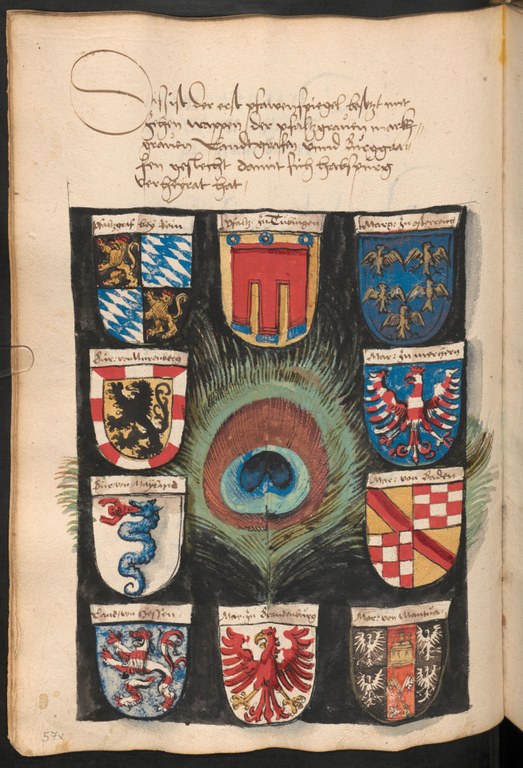Workshop // Stella Wisgrill: “Seen […] as if in a clear mirror with pure shine.” Vision and the Politics of Self-Knowledge in Emperor Maximilian I’s "Fürstliche Chronik" (1518)
Termindetails
Wann
von 12:00 bis 13:00
Art
Wo
Fellows und Mitarbeitende des ZI sowie Gastwissenschaftlerinnen und Gastwissenschaftler berichten über laufende Arbeiten. Die offene Form des Workshops ermöglicht eine intensive Diskussion.
Building on her recently completed doctoral research, Stella’s project at the ZI examines the epistemic and political stakes of vision and self-knowledge in the monumental Fürstliche Chronik Kaiser Maximilians Geburtsspiegel (1518), a six-volume, 1,300-folio genealogical chronicle commissioned by Emperor Maximilian I. Long treated merely as auxiliary to the emperor’s printed memoria works, the manuscript’s rich visual program demands study in its own right and provides the point of departure for this workshop.
The first part of the workshop probes the chronicle corpus and situates its production within the intellectual and artisanal networks of the Upper Rhine. We begin by exploring how the genealogical method constituted a highly competitive arena across imperial lands, before examining the more immediate intellectual roots of the chronicle’s author, Jacob Mennel, in the area surrounding Freiburg im Breisgau. Here, we also consider Mennel’s relation to the Carthusian scholar Gregor Reisch and examine the thriving artistic milieu then busy furnishing the Freiburg minster. Analysis of Hans Baldung Grien’s workshop and the stained-glass practice of Hans von Ropstein reveals compelling dimensions of intermedial collaboration and artisanal confidence that are argued to also illuminate the chronicle’s production context. What does the strategic presence – or telling absence – of the elusive “Mennel Master” and his signature indicate about the chronicle’s production? Are we dealing with a single hand or a more complex workshop structure?
 Close reading of the chronicle’s mirror and plumage imagery then demonstrates how text and illumination together cast vision and reflection as privileged instruments of political self-fashioning. To see one’s lineage clearly, Mennel’s manuscript implies, is to recognize one’s ordained place in divine order; such clarity, in turn, underwrites historical authority, political legitimacy, and spiritual salvation for ruler, scholar, and artisan alike. By foregrounding and critically unpicking these reflective strategies, the paper not only reassesses the chronicle’s role within Maximilian’s patronage but also positions the manuscript as a site for articulating learned and artisanal identities – offering fresh insight into the politics of vision on the eve of the Reformation.
Close reading of the chronicle’s mirror and plumage imagery then demonstrates how text and illumination together cast vision and reflection as privileged instruments of political self-fashioning. To see one’s lineage clearly, Mennel’s manuscript implies, is to recognize one’s ordained place in divine order; such clarity, in turn, underwrites historical authority, political legitimacy, and spiritual salvation for ruler, scholar, and artisan alike. By foregrounding and critically unpicking these reflective strategies, the paper not only reassesses the chronicle’s role within Maximilian’s patronage but also positions the manuscript as a site for articulating learned and artisanal identities – offering fresh insight into the politics of vision on the eve of the Reformation.
[Caption: Peacock Mirror. In Jakob Mennel, Fürstliche Chronik, 1518. Vol. 4, ÖNB Cod. 3075, fol. 57r. Illumination on paper. Österreichische Nationalbibliothek, Vienna. Photo Credit: ÖNB]
